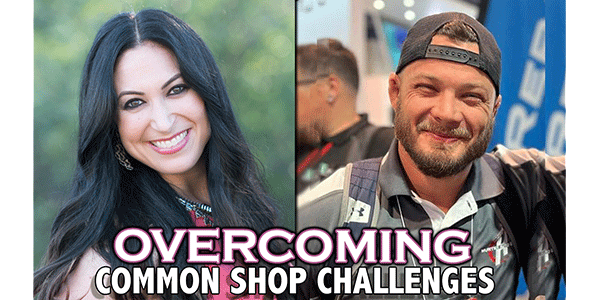I attended a recent Collision Industry Conference (CIC) and heard this: “We have all the people we need in this room to get something done without turning to politicians.” The person obviously believes that legislation doesn’t always solve the collision repair industry’s problems.
I’ve also heard another version of the same thing addressing regulation of the collision repair industry. The wording usually goes, “If we don’t regulate ourselves, the government will eventually step in and do it for us. Do we really want that? Look at the mess they’ve currently put us in.”
I’ve only been attending CIC for four years, but all those words seem familiar to me…yet nothing has changed. And some of the elder statesmen who have been attending CIC a lot longer than just the last four years have told me that the same rhetoric has been bandied about since the inception of CIC in the mid-1980s. And nothing has changed. Politicians are still continually being relied on to legislate our industry, and we still all can’t agree on how we should be regulated and what standards we should adhere to.
So I got to thinking: Why is this so? We know what we want: a self-regulated industry working off the same standards, devoid of meaningless laws that are completely ineffective, with shops able to compete on a level playing field in a free market. But we haven’t attained that due to too much disagreement, in-fighting and fragmentation.
That got me into another line of thinking: Why can’t we all just work for a common purpose? What unifies people? What brings people together for a common purpose? You’re never going to get all the people to agree on the same thing, but as long as you get a majority, you’re golden, right?
So I wondered if there were any examples in history that we could learn from. The first one that came to my mind (perhaps because MLK Day was not too long ago) was the civil rights movement led by Dr. Martin Luther King, Jr. To me, the two crucial elements there were a strong leader and a common purpose. Among African-Americans, there were no dissenters. I mean, did any actually say, “No, I still want to remain segregated,” or, “No, I still don’t want the same rights as everyone else.” Of course not. The benefits of what they were working toward were clear to all, which helped galvanize and unify them. Plus, you had an unshakable, inspirational leader like King.
In comparison, it’s clear to me the collision repair industry doesn’t have a strong, inspirational leader. Plus, there are too many disparate opinions about what’s good for the industry and what isn’t. For instance, there are still shops that hold fast that the insurance company is not the customer. Other shops include both insurers and consumers in the customer bucket. Also, there are still too many shops concerned only about themselves and not the industry as a whole. As one person put it to me, “You can get a room filled with these guys who all swear to agree to something, but there will always be one or two guys with their fingers crossed behind their backs.”
So guess who has taken the lead in shaping our industry? Insurance companies. For whatever purpose you want to argue, the main one probably being streamlining costs, insurers have pushed everyone into a direction to go. Why else do you think so much consolidation is going on and more and more shops are shuttering their doors?
Some are resisting, kicking and screaming, while others are relenting like leaves in a strong breeze. The wheel is set in motion, and I’m not sure there’s much that can be done about it.
I agree that it would take pitchforks and torches to change the direction in which we’re heading. But not enough people are willing to do that. And a national boycott of repairs that has been suggested by some? Again, not enough shops would participate. I guess it’s decision time as to whether or not you want to board this train.













